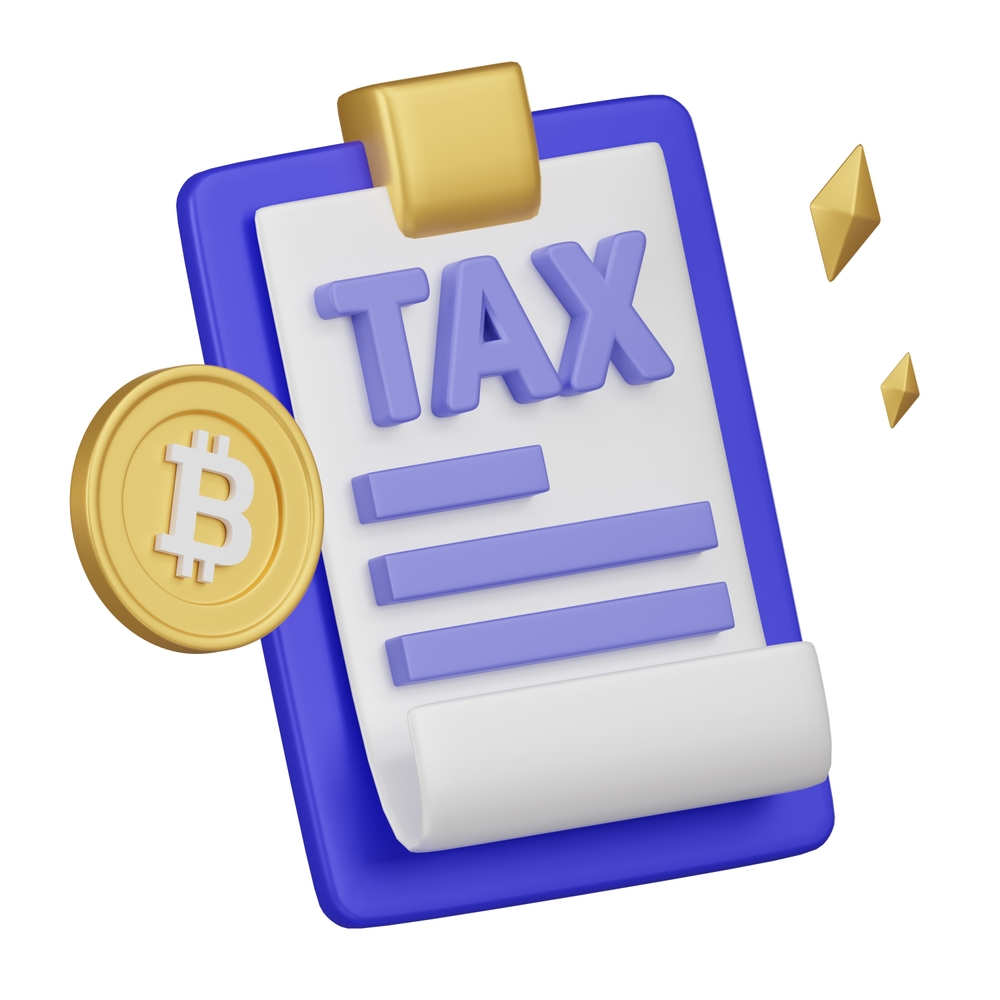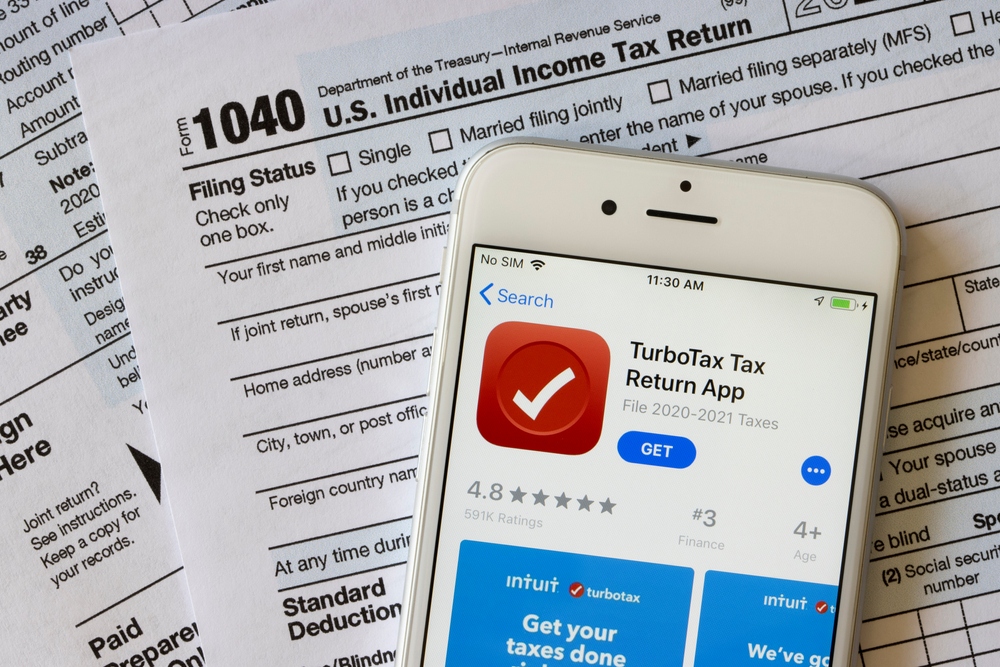Crypto Tax Filing Guide

Are you puzzled about how to file taxes on your crypto investments? Filing crypto taxes often feels like navigating a maze, with every buy, sell, and exchange carrying tax implications that can leave anyone’s head spinning. The fear of making a mistake on your tax return feels overwhelming, especially when the IRS treats cryptocurrency as property, pushing you to report even small transactions accurately. But fret not—I’m here to help you unravel this complex process. By the end of this guide, you’ll have the clarity and confidence to handle your crypto tax filing without breaking a sweat. Let’s ease that tax season stress and ensure you stay on the good side of the IRS while nurturing your digital investments with complete peace of mind.
The Problem: Crypto Taxes Can Be Confusing

Cryptocurrency is treated as property by the IRS, which means every buy, sell, and exchange has tax implications. This can get overwhelming quickly, especially if you’re not well-versed in tax codes.
Common Dilemmas
Many people worry about how to accurately report their crypto transactions and if they need to report even small amounts. The rules aren’t always clear and can be intimidating.
Our Promise: Clarity and Simplicity
We’re here to clarify the process for you. We’ll break down the exact steps you need to follow, what forms to use, and how to ensure you’re fully compliant without losing your mind.
What’s Next?
Let’s look into how you can start reporting your crypto transactions correctly.
Ever wondered why the IRS sees cryptocurrency as property? Or what exact steps you need to take for accurate reporting? Stay tuned as we break it all down in the next section.
Understanding the Basics of Crypto Taxation

If you’re feeling a bit lost about crypto taxes, don’t worry. You’re definitely not alone. Understanding the basics of how cryptocurrency is taxed can make the whole process much less intimidating. Let’s start by breaking it down.
Cryptocurrency as Property
The IRS treats cryptocurrency as property, not currency. This means each transaction, whether you’re buying, selling, or trading, has tax implications just like real estate or stocks. It’s essential to grasp this concept because it influences how your transactions are reported and taxed.
“Feeling overwhelmed? Remember, clarity is the antidote to complexity.” — John C. Maxwell
What is Taxable?
So what exactly do you need to report? Here’s a quick rundown:
- Selling Crypto for Fiat: If you sell your crypto for US dollars or any other fiat currency, you must report this transaction.
- Trading Crypto-to-Crypto: Trading one type of cryptocurrency for another (like trading Bitcoin for Ethereum) is also taxable.
- Using Crypto to Buy Goods or Services: If you use your crypto to purchase something, that transaction is taxable as well.
- Receiving Crypto as Income: Payments you receive in cryptocurrency for services or goods are considered taxable income.
The Importance of Record-Keeping
Good record-keeping is your best friend when it comes to filing crypto taxes. By maintaining detailed records of each transaction, you can ensure accuracy and avoid potential mishaps. Services like TaxBit offer tools that can help you track your transactions effortlessly.
- Track Every Transaction: Keep a record of every buy, sell, exchange, and even crypto received as income, along with the fair market value at the time of the transaction.
- Save Receipts and Invoices: Keeping documentation can help substantiate your records and make filing easier.
- Organize Your Records: Regularly update your records and store them in an organized manner to make tax season a breeze.
Feeling more confident about the basics? Great! The next step is to understand how to report your crypto transactions correctly. But how do you accurately fill out those IRS forms?
How to Report Crypto Transactions

Understanding how to report your crypto transactions is crucial. Let’s walk through the process step by step. By the end, you’ll be a pro and a lot less stressed come tax time.
Using Form 1040 Schedule D
First things first, let’s talk about Form 1040 Schedule D. This is where you’ll report all your capital gains and losses from your crypto activities. Here’s a quick guide:
- Step 1: Gather all your transaction records. This includes buys, sells, trades, and any conversions.
- Step 2: Determine your capital gains or losses. Subtract the purchase price (your basis) from the sale price. If you sold for more than you bought, it’s a gain. Less? It’s a loss.
- Step 3: Fill out Schedule D. Enter your totals on the appropriate lines and make sure your figures match your Form 8949 if you’re using one.
It’s not as tricky as it sounds once you get the hang of it. Think of it as balancing your checkbook, but with digital assets.
When to Use Form 8949
Form 8949 comes into play for detailed reporting of your transactions. You use this form to list all sales and dispositions of your crypto. Here’s when you should use it:
- Multiple Transactions: If you’ve conducted multiple transactions, you’ll need to provide a breakdown on Form 8949.
- Accuracy: Ensures all gains and losses are accurately reported before transferring totals to your Schedule D.
To fill it out:
- Add your transaction details including dates acquired, dates sold, and proceeds.
- Ensure your totals match what you put on Schedule D to avoid discrepancies.
“The hardest thing in the world to understand is the income tax.” – Albert Einstein
Reporting Crypto Income
Don’t forget about income generated from activities like staking or mining. It’s treated differently than capital gains and is often classified as ordinary income.
- Staking Rewards: Report these as other income on your tax return using Form 1040.
- Mining: Income from mining is typically reported as business income, which can be done on Schedule C. Keep in mind, you’re also eligible for business deductions here, including electricity and equipment costs.
Accurately reporting every last bit of your crypto income ensures you stay compliant and avoid penalties.
Ready to handle more complex scenarios? Next, we’ll talk about those special cases that might complicate your tax reporting. Stay tuned!
Special Cases You Need to Know About

Tax reporting for cryptocurrencies can be tricky, especially when it comes to special scenarios. Let’s break down some of the most confusing situations you might face.
Hard Forks and Airdrops
Have you ever received new cryptocurrency due to a hard fork or an airdrop? You’re not alone, and yes, these have tax implications. When you receive new cryptocurrency through a hard fork or an airdrop, it’s considered taxable income.
Example: Imagine you were holding Bitcoin and it went through a hard fork, resulting in you receiving Bitcoin Cash. The IRS expects you to report the fair market value of Bitcoin Cash at the time you received it as ordinary income.
“In this world, nothing can be said to be certain, except death and taxes.” – Benjamin Franklin
Crypto-to-Crypto Transactions
Did you swap your Ethereum for some Bitcoin? That’s not just a simple trade—it’s a taxable event. Every time you exchange one cryptocurrency for another, you’re required to report it.
Example: Let’s say you traded 1 ETH for 0.03 BTC. You need to keep a record of the value of ETH in USD at the time of the trade and report any gains or losses based on that value. Why? Because according to the IRS, it’s like selling a property and immediately buying another one.
Crypto Received as Income
Receiving crypto as payment for services or goods? This is considered regular income and needs to be reported just like your salary.
Example: Suppose you created a logo for a client and they paid you 0.01 BTC for your work. The fair market value of that 0.01 BTC at the time you received it must be included in your income for that year.
Remember, you’ll need to convert the value to USD (or your local currency) as the IRS requires all amounts to be reported in USD.
These special cases can make tax reporting feel like a rollercoaster, but staying informed can keep things on track. Want to find out how to make this process easier? Stay tuned for the upcoming section on tools and resources that can simplify your crypto tax filing. Trust me, it’s going to save you a lot of time and stress!
Tools and Resources to Simplify the Process

Let’s face it, filing taxes can be a bit daunting, especially when it comes to crypto. But you don’t have to do it alone. There are some fantastic tools and resources available to make the process way easier.
Tax Software Solutions
First up, let’s talk about tax software. Programs like TurboTax can be lifesavers. They come with step-by-step guides to help you report your crypto transactions accurately. Imagine having all your transactions neatly tracked and calculated without having to sweat the small stuff. As the famous saying goes, “Work smarter, not harder.”
Why use tax software?
- Automates calculations for gains and losses.
- Integrates directly with popular crypto exchanges.
- Offers audit support in case the IRS has questions.
Online Guides and Resources
Need something to help you understand the ins and outs of crypto taxation? There are comprehensive guides out there like the TaxBit Cryptocurrency Tax Guide and Fidelity’s Crypto Tax Guide. These resources dig deep into specifics and offer tons of examples to make the process understandable.
Why use online guides?
- Detailed explanations and examples.
- Updated regularly to reflect the latest tax laws.
- Can be accessed anytime, anywhere.
Keeping Updated
One thing that’s crucial when it comes to taxes? Staying current with the latest regulations. Tax laws are always changing, and what was applicable last year might not be relevant this year. It’s essential to keep yourself updated so you’re filing accurately.
Consider subscribing to newsletters or following blogs that focus on crypto tax news. This way, you’ll always be in the loop about any new regulations or important updates. Remember, knowledge is power. The IRS is continually evolving its stance on cryptocurrencies, so staying informed is your best tool.
Looking for more answers on handling specific scenarios or common questions about crypto taxes? Stay tuned, because next, we’ll explore those burning queries that everyone has!
Common Questions and Scenarios

As we navigate the complex world of crypto taxes, you’re bound to have some burning questions. Let’s tackle some of the most common ones that come up.
Do I Have to Pay Taxes on Small Amounts?
You might be wondering if you really need to worry about those small amounts of crypto you’ve stashed away. The answer is yes. According to the IRS, even small amounts of crypto income need to be reported. For instance, if you’ve received $50 worth of Bitcoin as a gift, it needs to be documented. Ignoring small transactions can snowball into bigger problems down the line.
What if I Made a Loss?
Losses hurt, but they can actually help reduce your tax liability. If you traded crypto and ended up with losses, you can use them to offset your gains. For example, if you made a $2,000 gain but a $1,000 loss, only the net gain of $1,000 is taxable. This strategy, known as tax-loss harvesting, can significantly minimize what you owe the IRS.
Scenarios for Non-Traders
If you’re more of a long-term hodler or someone who receives crypto as gifts, different rules apply to you. Long-term holders only need to worry about taxes when they sell or convert their holdings into fiat. Even if you receive crypto as a gift, you’ll need to consider its value at the time you acquired it. The key is to keep detailed records of these transactions to make it easier when you do decide to cash out.
For those who prefer to learn by seeing, check out these comprehensive guides from experts: TaxBit Cryptocurrency Tax Guide, TurboTax Crypto Tax Forms, and Fidelity’s Crypto Tax Guide. These resources are invaluable for getting a better grasp on your crypto tax obligations.
Curious about how to ensure everything is perfect before you hit that submit button?
Final Steps and Best Practices

Alright, folks, we’re nearing the finish line. Let’s put everything together so you can file your crypto taxes without any hiccups. Here are some final steps and best practices to ensure you’ve got it all covered.
Double-Check Your Work
First things first: review all of your entries. A simple mistake can lead to complications or even penalties down the line. Go over each transaction, double-check your forms, and ensure all the numbers add up. Trust me, a bit of extra time spent here will save you a lot of headaches later.
Consult a Professional if Necessary
If you’re feeling even slightly unsure about anything, don’t hesitate to consult a tax professional. Crypto taxes are intricate, and a pro can offer specialized advice tailored to your situation. Hiring an expert might seem like a splurge, but it’s better than facing the IRS unprepared. Plus, tax professionals can often find deductions or credits you may have missed.
Stay Organized for Next Year
Let’s think ahead for a moment. The goal is to make next year’s tax season a breeze. Here are some tips to stay organized:
- Maintain Detailed Records: Keep a spreadsheet of all your transactions or use a reliable crypto tax software. This will help you track buys, sells, trades, and any income received in crypto.
- Use a Dedicated Folder: Create a digital or physical folder specifically for receipts, transaction history, and tax forms related to your crypto activities.
- Set Reminders: Set monthly or quarterly reminders to update your transaction records. Staying on top of this throughout the year means less stress come tax season.
You’ve Got This!
Filing your crypto taxes can feel daunting, but with the right knowledge and tools, you’ve got this! Stay compliant, stay organized, and don’t stress. Whenever you need a refresher, feel free to revisit this guide. Happy filing, and here’s to smooth sailing through tax season!
